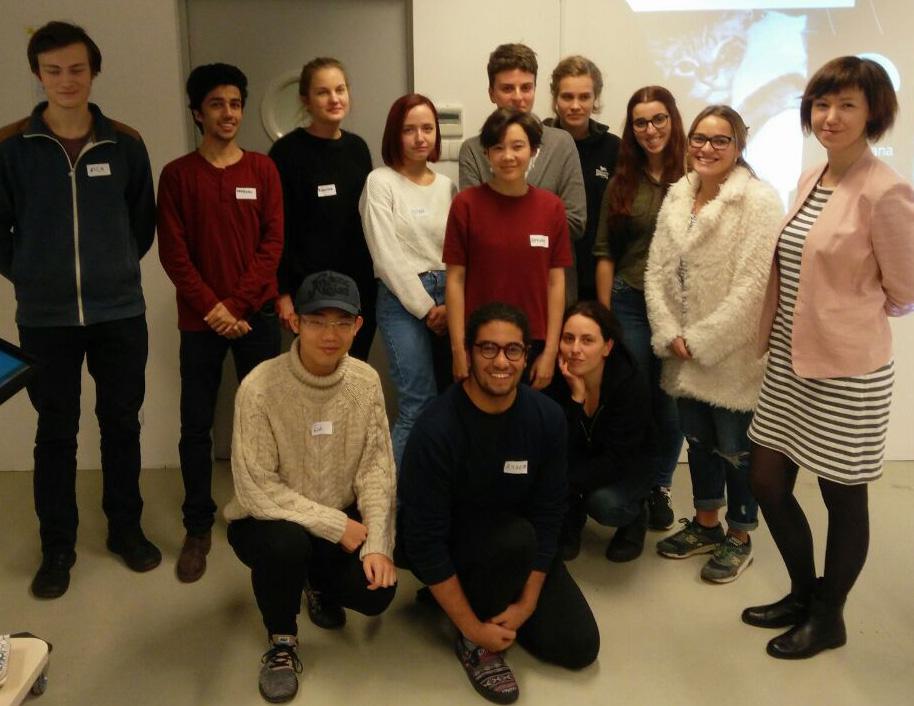#RE-MEDIA: Design with Europeana at the School of Form
The beginning of November marked the launch of the two month RE-MEDIA: EUROPEANA program at the School of Form (SoF) in Poznań, Poland. This program is part of Tu Europeana, a campaign coordinated by the Polish Ministry of Culture and National AudioVisual Institute of Poland (NInA) to increase the awareness of digital cultural heritage available in Europeana Collections and to encourage reuse of openly-licensed materials.
RE-MEDIA: EUROPEANA is a series of weekly workshops on topics related to various aspects of the creative re-use: content, IPR, and prototyping. The program participants are students selected from various countries and disciplines, including Communication Design, Industrial Design, Fashion Design and Domestic Design. They will use the tools of design research, new media, application design, alternative thinking on arts and fashion design, music and cinema resources to explore the re-use potential of digital cultural heritage.
Among the participants is also Tetiana Baran, one of the winners of the Europeana Labs mini challenge that took place at THE ARTS+ Fair in Frankfurt earlier this year. Tetiana will be able to share her first-hand experience with Europeana content and support with tips and ideas during the program.
Małgorzata Szynkielewska, Content and Exhibitions Coordinator at Europeana, led the second RE-MEDIA workshop on 15 November which introduced the students to the rich and diverse Europeana Collections.

Participants of the Re-media Europeana workshop. CC BY-SA Europeana
During the half-day workshop, students learnt how to browse europeana.eu for inspiration, as well as make specific search queries when looking for content. They looked at various examples of how others have used digital collections in a creative way. Special attention was paid to the responsible use of digital content as the students learned about the different rights statements and the correct ways to credit original works.
In the next weeks the students will develop their own projects with Europeana content. The prototypes (applications, visualisations, art and new media) will be showcased at a special event organized by the National AudioVisual Institute of Poland in Warsaw in the beginning of 2017. We look forward to seeing what those creative young minds will come up with!

